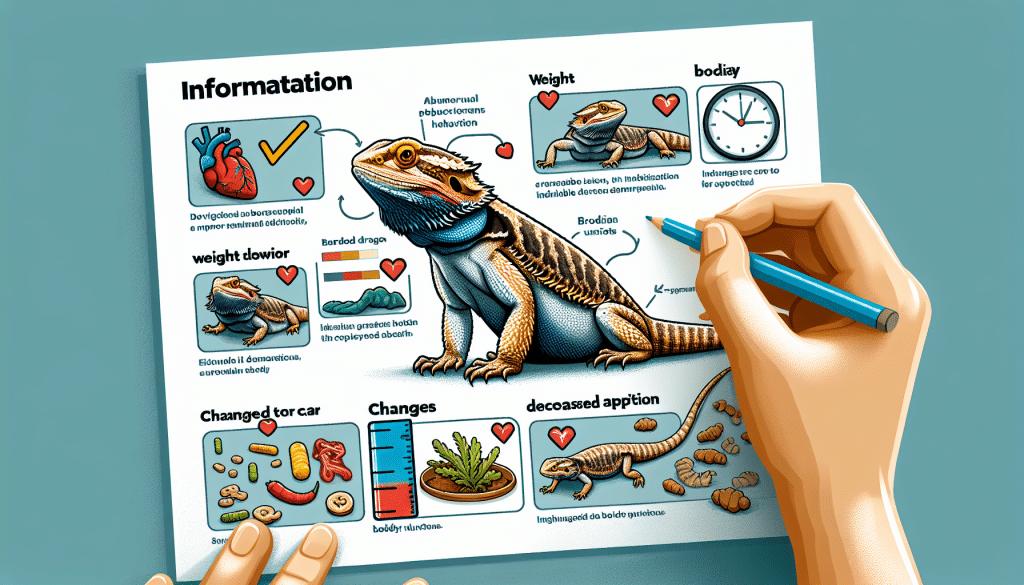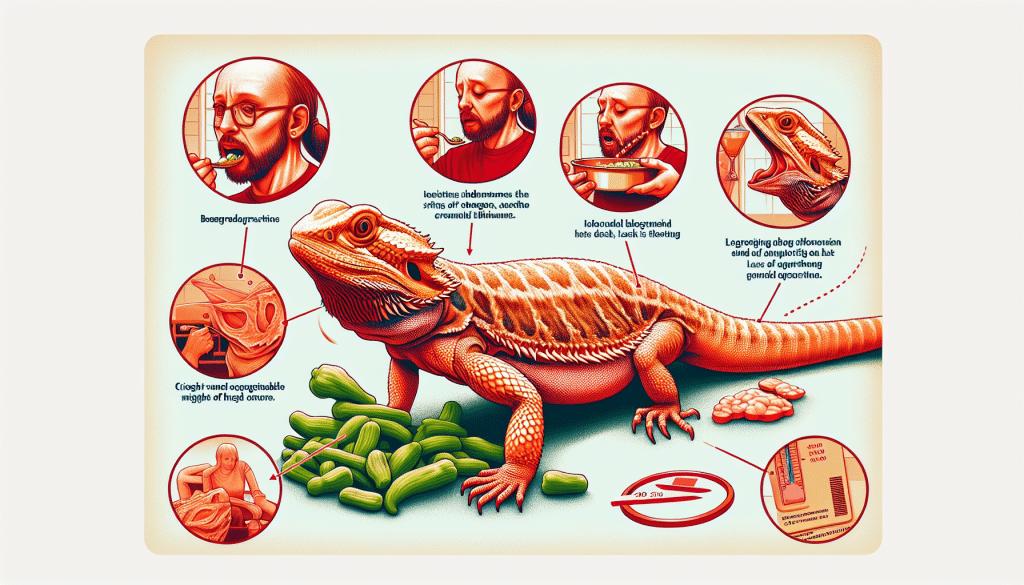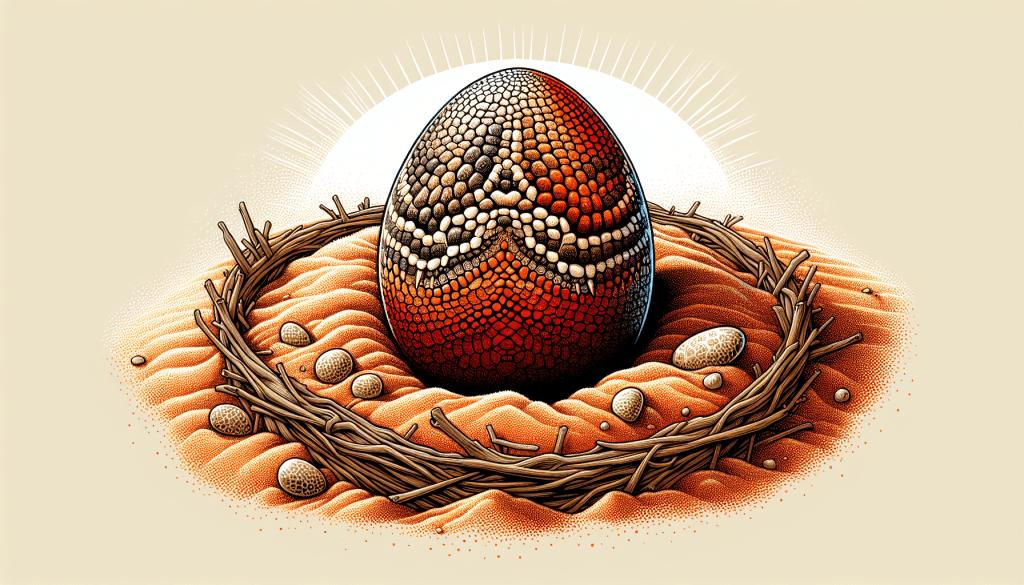This article will help you learn about the signs that may indicate if your bearded dragon is dying. By understanding the specific signs to look out for, you can take appropriate actions and provide the necessary care for your beloved pet. It’s important to pay close attention to changes in their behavior, appetite, and physical appearance to ensure their well-being. Let’s explore the signs that may indicate your bearded dragon is in distress and needs immediate attention.

Understanding the Lifespan of Bearded Dragons
Bearded dragons are fascinating reptiles that can make great pets. It’s important to understand their average lifespan and the factors that can affect their life expectancy. By knowing what signs to look for, you can better care for your bearded dragon and provide them with a happy and healthy life.
Typical lifespan of a bearded dragon
The average lifespan of a bearded dragon is between 8 and 12 years. However, with proper care and attention, some bearded dragons have been known to live even longer. It’s important to note that the lifespan can vary depending on various factors, including genetics, diet, habitat, and overall health.
Factors affecting the life expectancy of a bearded dragon
Several factors can impact the lifespan of a bearded dragon. One of the most critical factors is their diet and nutrition. Bearded dragons require a balanced diet that consists of insects, vegetables, and occasionally fruits. Their habitat and setup is also crucial in ensuring a healthy lifespan, providing ample space, proper temperature gradients, and suitable lighting. Regular health check-ups with an exotic vet are essential to catch any potential health issues early on.
Physical Signs That Your Bearded Dragon Is Dying
As a responsible owner, it’s important to be able to recognize the physical signs that may indicate your bearded dragon is unwell or nearing the end of its life. By monitoring these signs closely, you can take appropriate action and seek veterinary care if needed.
Dramatic weight loss or anorexia
If you notice that your bearded dragon is losing a significant amount of weight or has completely stopped eating, this could be a sign of illness. Bearded dragons are typically voracious eaters, so a sudden loss of appetite should be taken seriously.
Severe or abnormal shedding
Shedding is a natural process for bearded dragons, but if you notice that your dragon is having difficulty shedding or if there are areas of incomplete shedding, it could be a sign of an underlying health issue.
Changes in appearance such as dullness or discoloration
Healthy bearded dragons have vibrant colors and a shiny appearance. If your dragon’s skin appears dull, discolored, or has any unusual patches, it could indicate a decline in health.

Behavioral Signs of a Dying Bearded Dragon
In addition to physical signs, changes in behavior can also indicate that your bearded dragon is unwell or nearing the end of its life. By paying attention to these behavioral signs, you can provide appropriate care and seek veterinary help if necessary.
Lethargy or lack of activity
A normally active bearded dragon suddenly becoming lethargic or unusually inactive may suggest an underlying health issue. If your dragon seems weak or lacks energy, it’s important to closely monitor its behavior and seek veterinary care if the issue persists.
Changes in sleep patterns
Bearded dragons have distinct sleep patterns, and any sudden changes in these patterns could indicate a decline in health. If your dragon is sleeping more than usual or seems restless during sleep, it’s important to take note and consult with a veterinarian.
Frequent hiding or avoidance
Bearded dragons are generally curious and social creatures. If your dragon starts hiding frequently or shows signs of avoidance, such as refusing to interact with you or retreating to its hideaway more often, it may be a manifestation of underlying health issues.
Digestive Signs That Your Bearded Dragon Is Dying
Proper digestion is essential for a bearded dragon’s overall health. If you observe any digestive issues, it may be an indicator that something is wrong.
Irritated or abnormal bowel movements
If you notice any changes in your bearded dragon’s bowel movements, such as diarrhea, constipation, or blood in their stool, it’s crucial to seek veterinary assistance. Digestive problems can be a symptom of a more serious underlying condition.
Lack of appetite or refusal to eat
A bearded dragon with a lack of appetite or outright refusal to eat is a significant cause for concern. If your dragon consistently avoids food or shows no interest in eating, prompt veterinary care is necessary to address the issue.

Respiratory Symptoms Indicating Health Decline
Bearded dragons can also experience respiratory issues that may signal deteriorating health. It’s important to monitor their breathing patterns and seek professional help if you notice any concerning symptoms.
Gasping for breath
If you observe your bearded dragon gasping for breath, struggling to breathe, or displaying rapid or shallow breathing, it may indicate a respiratory problem. Prompt veterinary intervention is crucial to ensure proper treatment.
Unusual noises while breathing
While bearded dragons may make occasional noises when breathing, consistent wheezing, coughing, or clicking sounds can indicate respiratory distress. It’s important to consult a veterinarian to properly diagnose and treat the issue.
Changes in Bearded Dragon’s Social Behavior
Bearded dragons are known for their social nature, so any changes in their behavior towards interaction can be a cause for concern.
Lack of interest in interacting
If your bearded dragon suddenly loses interest in engaging with you or shows a lack of response to your presence, it may be indicative of underlying health issues. Monitoring their social behavior and seeking veterinary care if necessary is vital.
Excessively aggressive behavior
While occasional aggression is normal, if your bearded dragon’s aggression becomes excessive or out of character, it may signal an underlying health issue. It’s crucial to monitor their behavior closely and consult a veterinarian to address the root cause.
Temperature-Related Signs of Ill Health
Bearded dragons rely on maintaining a comfortable body temperature, and any inability to regulate their temperature can signal an underlying health problem.
Unable to regulate body temperature
If your bearded dragon is unable to bask under its heat lamp comfortably or fails to cool down when provided with a cooler area, it may indicate an issue with their ability to regulate their body temperature effectively. Seeking veterinary advice is essential to ensure the health and well-being of your dragon.
Constantly seeking warmth or coolness
While bearded dragons naturally seek warmth or coolness based on their needs, excessive and constant seeking of either extreme may be a sign of ill health. Monitoring their temperature-seeking behavior and consulting with a veterinarian can help address any underlying issues.
Common Diseases That Can Cause Death
Bearded dragons are susceptible to various diseases that can impact their health and ultimately result in death. Knowing the common diseases associated with this species can help you identify potential health concerns.
Metabolic bone disease
Metabolic bone disease is a common condition in bearded dragons that affects their skeletal system. It is often caused by an imbalance in calcium and phosphorus levels. Symptoms may include soft or brittle bones, swollen limbs, and difficulty walking.
Respiratory Infections
Respiratory infections can impact the respiratory system of bearded dragons, causing symptoms such as labored breathing, wheezing, nasal discharge, and loss of appetite. Prompt veterinary treatment is necessary to prevent further complications.
Impaction
Impaction occurs when a bearded dragon ingests a foreign object or a substrate that cannot be properly digested. This can lead to a blockage or obstruction in their digestive system, resulting in symptoms such as loss of appetite, constipation, and bloating. Immediate veterinary care is crucial to resolve this issue.
Proper Care to Prolong Life
To ensure your bearded dragon lives a long and healthy life, it’s important to provide proper care and attention to their needs.
Proper diet and nutrition
A well-balanced diet is crucial for the overall health of a bearded dragon. Providing a variety of live insects, leafy greens, and occasional fruits can help meet their nutritional requirements. Researching and following appropriate feeding guidelines will contribute to their long-term well-being.
Correct habitat and setup
Creating a suitable habitat for your bearded dragon is essential. This includes providing an adequately sized enclosure with appropriate substrate, temperature gradients, UVB lighting, and a comfortable hiding spot. Establishing a proper setup and adhering to it will promote a healthy environment for your dragon.
Regular health check-ups
Regular check-ups with an experienced exotic veterinarian are crucial in monitoring your bearded dragon’s health. These check-ups allow for early detection of any potential issues and ensure timely intervention and treatment. Regular health examinations can greatly contribute to prolonging your bearded dragon’s life.
When to Seek Veterinary Care
Understanding when to seek veterinary care is vital for ensuring the well-being of your bearded dragon. Knowing the difference between regular check-ups and emergency visits is important.
Regular check-ups vs. emergency visits
Regular check-ups should be scheduled according to your veterinarian’s recommendations, typically once or twice a year. These visits allow professionals to examine your dragon and ensure their overall health. Emergency visits, on the other hand, should be sought if you observe severe symptoms, sudden distress, or any signs that indicate an immediate health concern.
Choosing the right exotic vet
Finding the right veterinarian who specializes in exotic animals is crucial for providing the best care for your bearded dragon. Look for a vet who has experience treating reptiles and who is knowledgeable about the specific needs of bearded dragons. Seeking recommendations from local reptile enthusiasts or online reptile communities can help you find a reputable and qualified exotic vet.
In conclusion, understanding the lifespan of a bearded dragon and being aware of the physical, behavioral, digestive, respiratory, and temperature-related signs that may indicate a decline in health is vital for responsible ownership. By providing proper care, following appropriate guidelines, and seeking veterinary assistance when needed, you can ensure your bearded dragon lives a long and fulfilling life.

